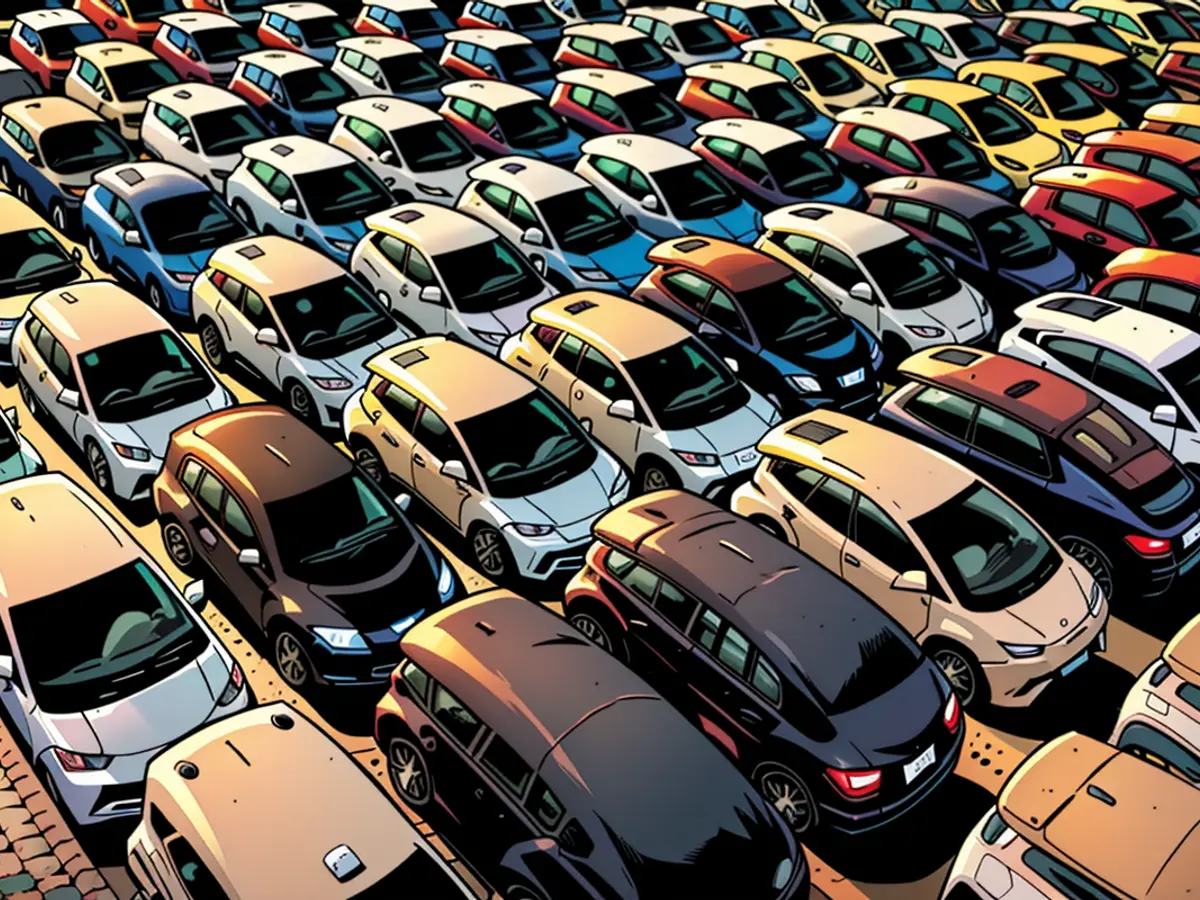Volkswagen and BMW secure lower import taxes for their electric vehicles originating from China.
For Volkswagen, BMW, and their Chinese collaborators, an import tax increase of 21.3% is applied for electric vehicle imports into the EU, as declared by the EU Commission - much lower than the maximum rate of approximately 36%. For instance, BMW produces fully electric Mini vehicles in China with its partner Great Wall Motors. Tesla enjoys the lowest tax rate of 9.0%. Tesla manufactures its Model 3 and Y cars in China, some of which are intended for the European market.
However, Chinese manufacturer SAIC encounters the highest tax surcharge of 36.3%, as it's deemed uncooperative in Brussels. On the contrary, the EU Commission has set a more generous additional tax of 17% for the BYD group from China, and 19.3% for Geely.
Initially, the Commission planned for manufacturers to pay these taxes by July 5; however, they won't be due until the final tax decision is published in the EU Official Journal, around October 30. The Commission had required manufacturers to post bank guarantees for these taxes starting July.
The German Automotive Industry Association (VDA) commended the Commission's decision to treat European manufacturers with Chinese joint ventures more leniently than initially anticipated. However, Hildegard Müller, President of the VDA, voiced concern over the tariffs exacerbating "the risk of a global trade conflict." German car manufacturers worry about rising expenses, even for electric vehicle buyers. Only fully assembled vehicles are impacted by the tariffs; individual components such as batteries are exempt.
The EU Commission alleges that the People's Republic is providing illegal subsidies to its manufacturers, potentially causing harm to European providers, such as potential plant closures or job losses. Nevertheless, Commission officials underscored that negotiations with Beijing are still feasible to sidestep these tariffs.
Ursula von der Leyen, EU Commission President, initiated this investigation, claiming that global markets are being inundated with cheaper Chinese electric vehicles. Chinese providers like BYD and SAIC have seen their European market share grow to nearly eight percent within the past two years. The share of electric cars produced in China by manufacturers like BMW, Volvo, or Tesla is even more prominent.
The Chinese Chamber of Commerce in the EU (CCCEU) denounced the tariffs, accusing the Commission of employing a "protectionist approach." The Chamber asserts that there's insufficient evidence that Chinese electric vehicles are undermining European manufacturers. China had previously appealed to the World Trade Organization (WTO) in this dispute back in early August.
Even Commission officials admitted on Tuesday that the investigation hadn't found any concrete harm to European manufacturers. However, such harm is expected to materialize "in the near future" until 2025, according to an unnamed expert.
In Germany, particularly, Chancellor Olaf Scholz (SPD) is vocal against the tariffs. Conversely, Federal Minister of Economics Robert Habeck (Greens) supports the Brussels approach.
Manufacturers now have ten days to respond. Afterward, the EU Commission will present its proposal to the member states for a final decision. The threshold to revoke these tariffs is high: a qualified majority of 15 EU countries, representing 65% of the European population, would be required.
Volkswagen, like other automakers with Chinese collaborators, will face a higher import tax for electric vehicles into the EU compared to the initial proposal, although still lower than the maximum rate. Despite the increase, VW continues its partnership with SAIC to manufacture cars in China for global markets.
Despite opposing views within the German government, Chancellor Scholz and Federal Minister Habeck have different stances on the import tariffs for Chinese-made electric vehicles, with Scholz voicing his disapproval and Habeck supporting the EU Commission's approach.







